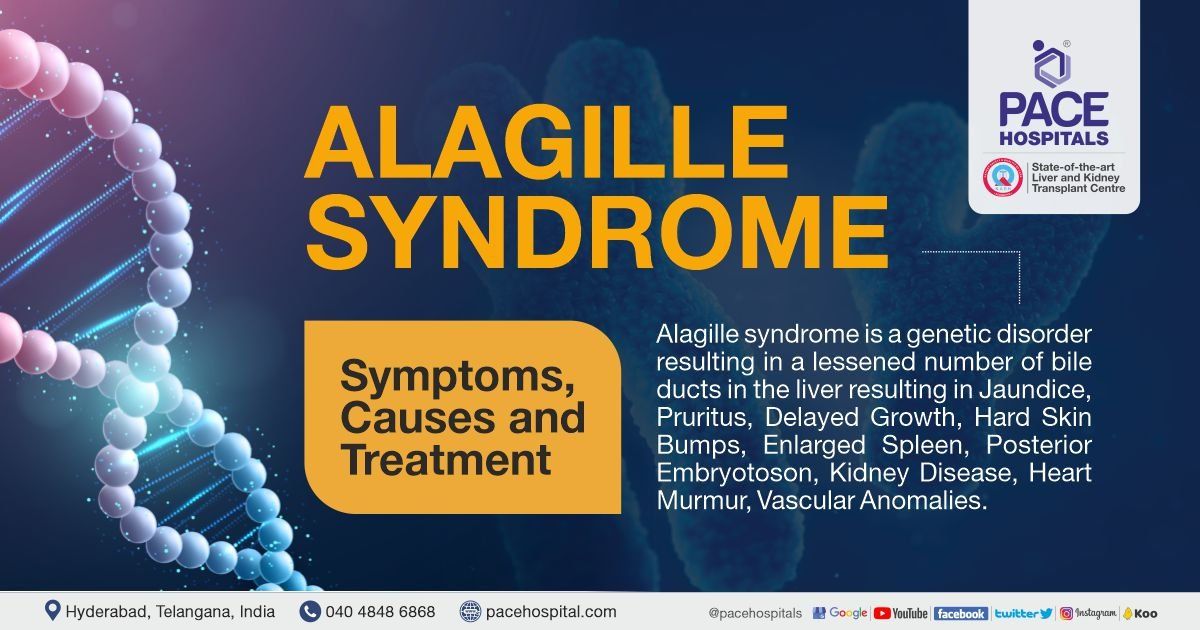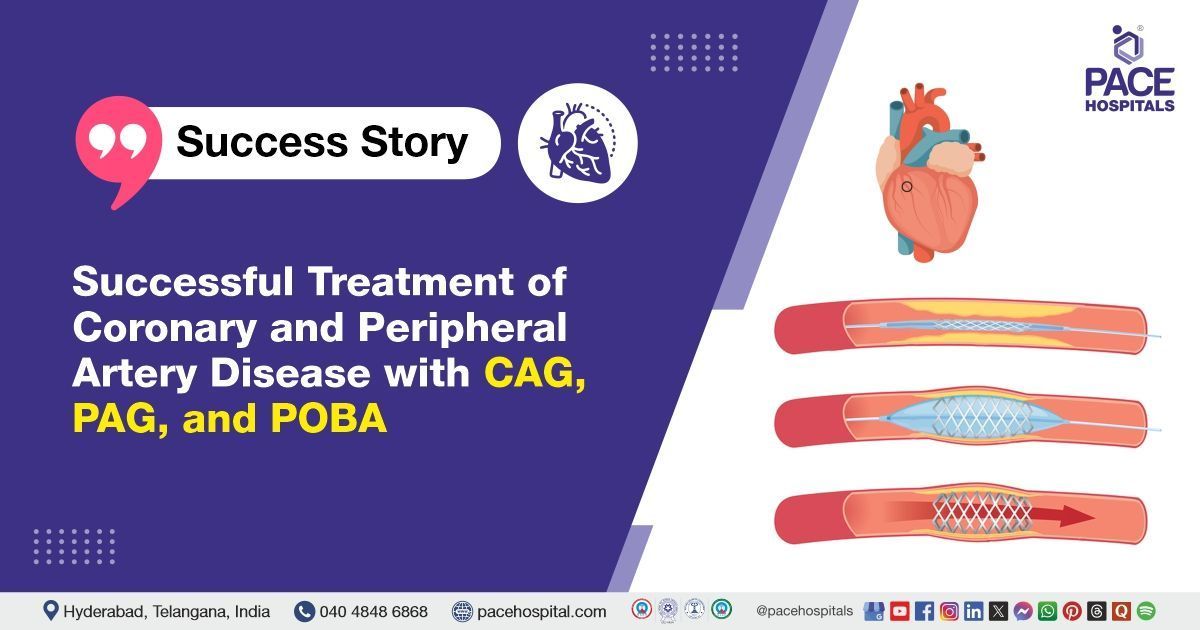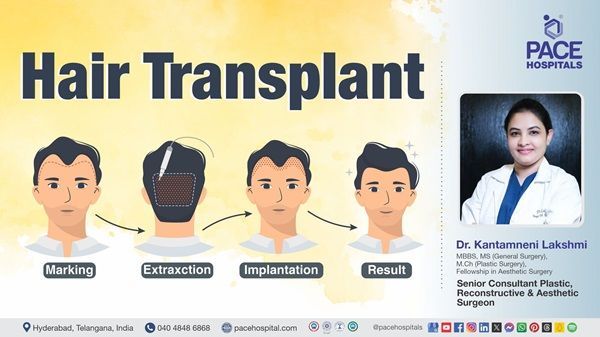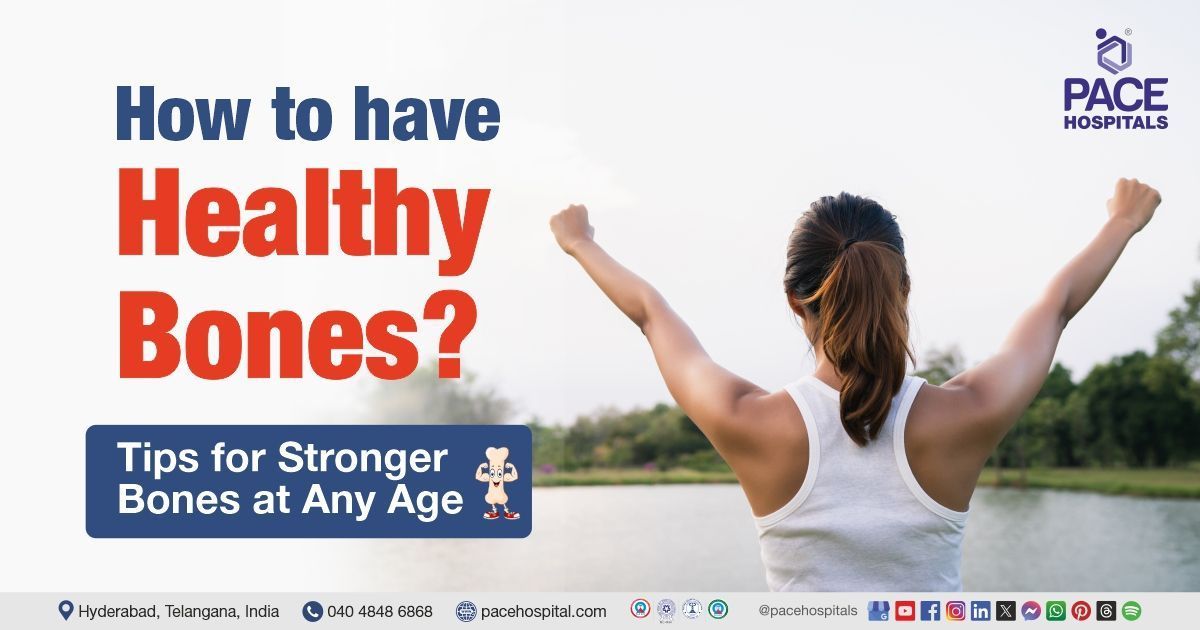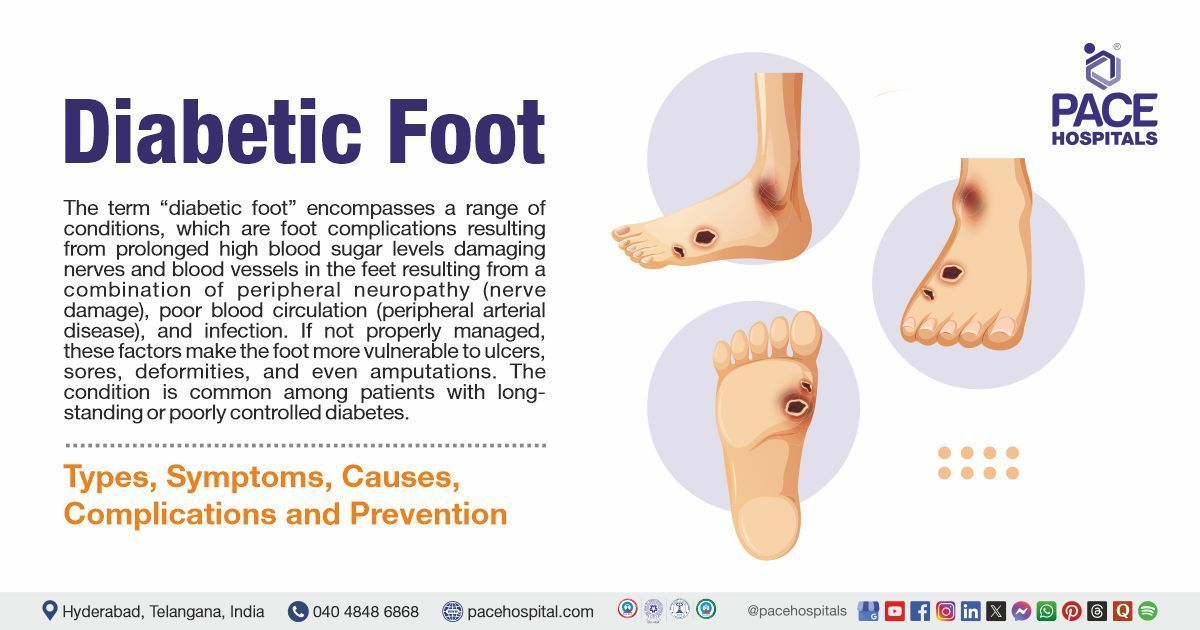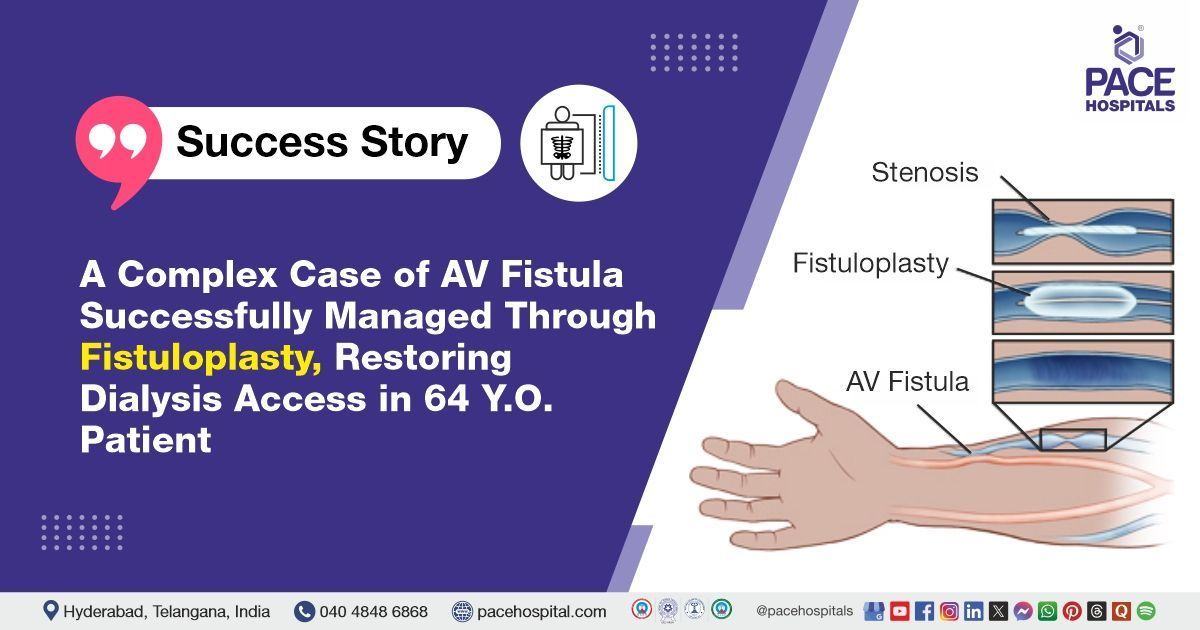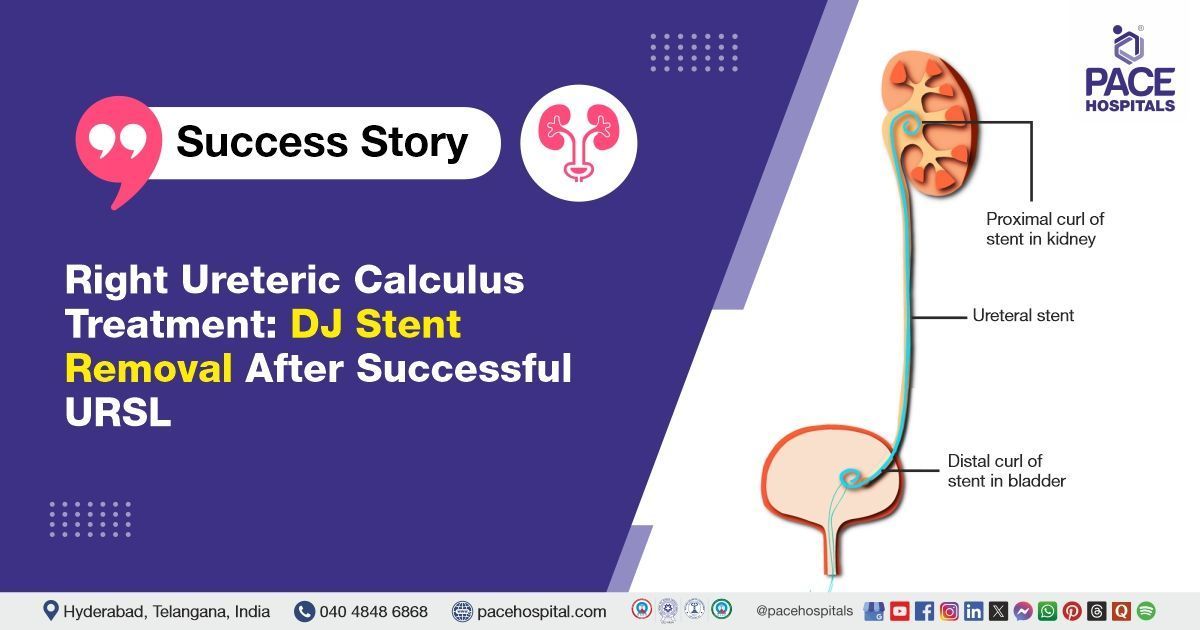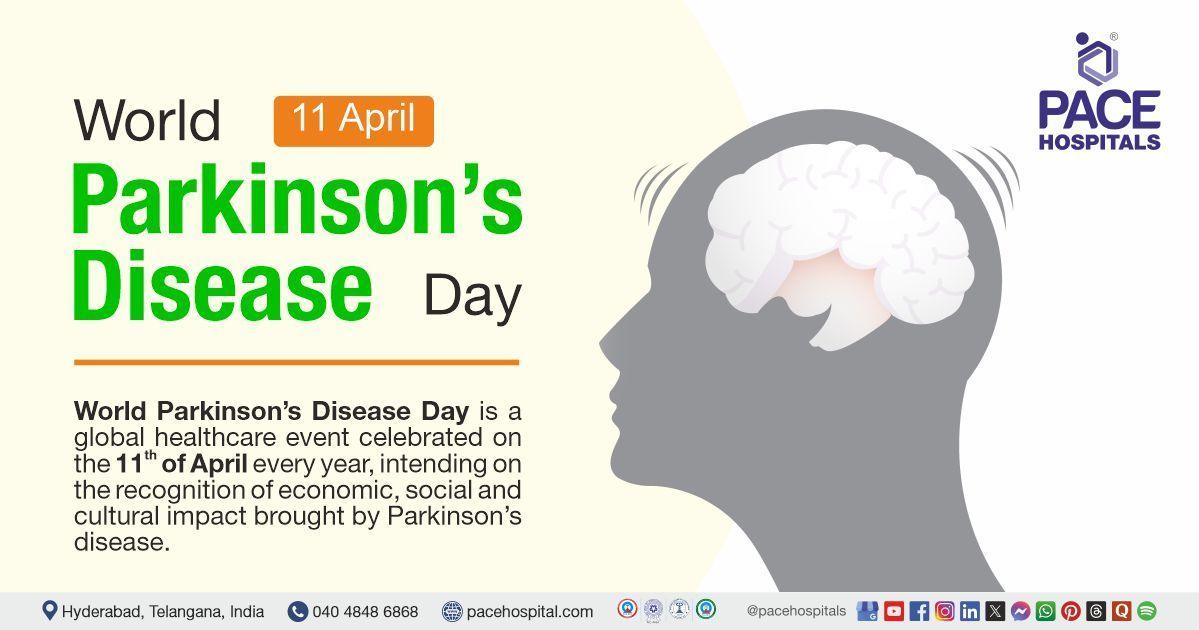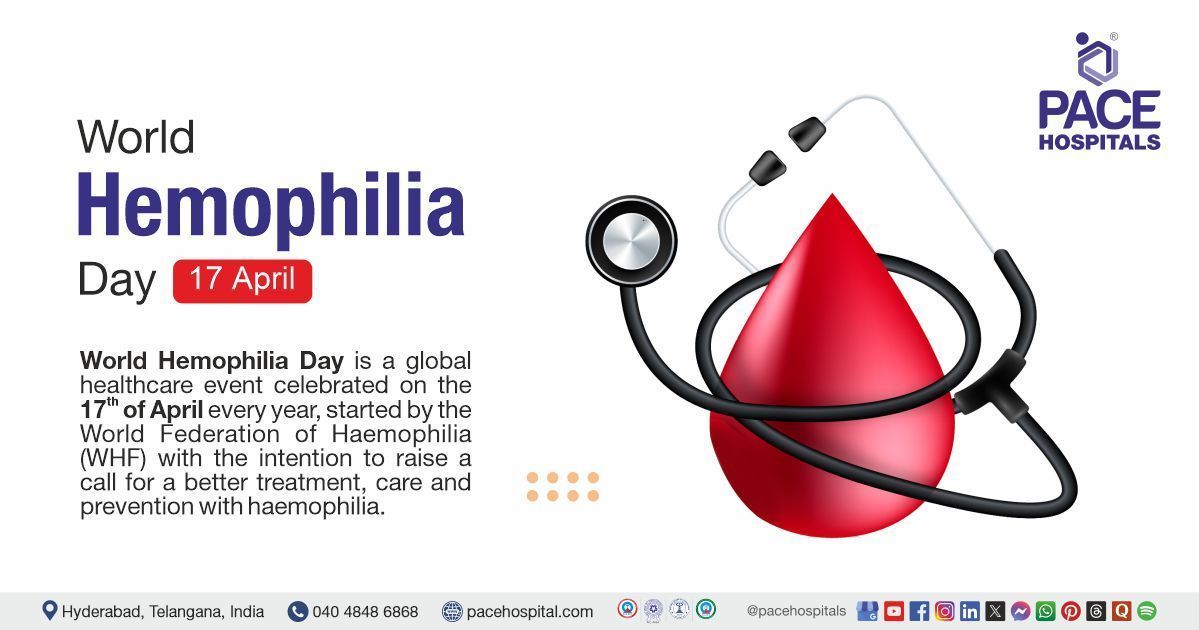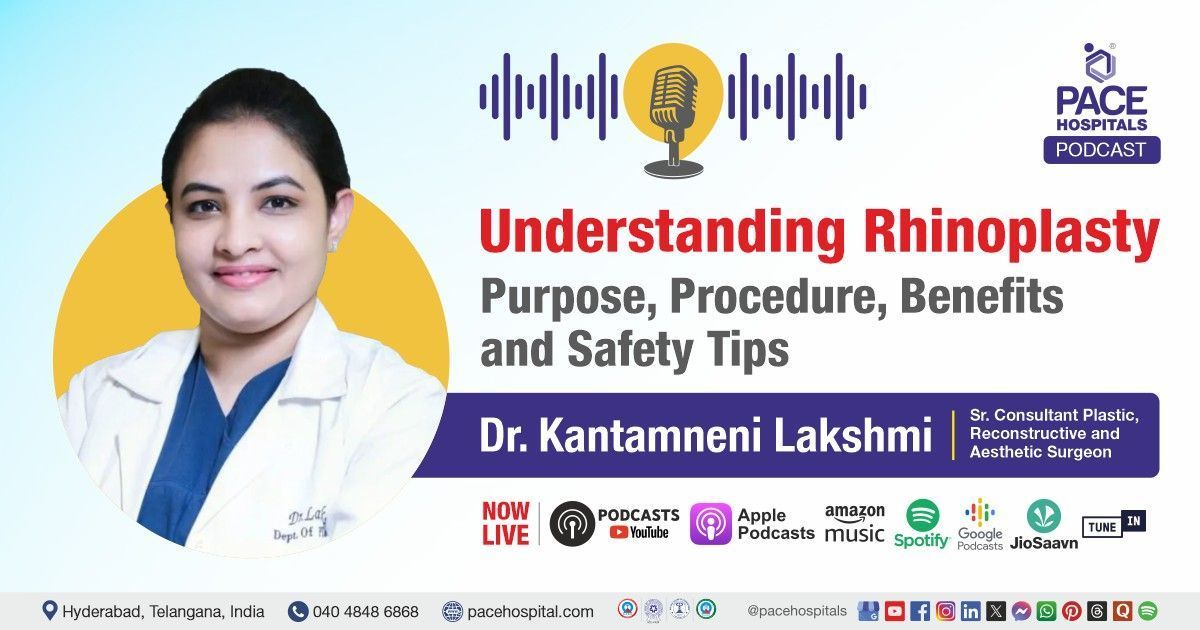Alagille Syndrome - Symptoms, Causes and Treatment
Alagille syndrome is a genetic disorder (inherited disease), resulting in a lessened number of bile ducts (bile duct paucity) in a liver; due to the fewer bile ducts, transportation of bile gets restricted, leading to the deposition of too much bile in the liver. The inability to drain optimum bile from the liver to the important digestive organs disrupts the absorption of vital nutrients. Also, it can lead to toxic material's deposition in the body.
The bile ducts are tubular structures that carry bile from the liver to the small intestine. Uninterrupted transportation of bile is crucial as it supports the digestive process and absorption of dietary fats, vitamins and other nutrients and helps remove excess cholesterol, bilirubin, waste products and toxins from the body.
Bile formation is one of the functions of the liver. Bile is a liquid that contains water, electrolytes, and other substances, including bile salts, phospholipids, cholesterol, and an orange-yellow pigment (bilirubin), a by-product of the natural breakdown of red blood cells. Due to decreased bile ducts, people with Alagille syndrome can develop jaundice and Cholestasis, usually during the first four months of life. Cholestasis refers to the blockage of the flow of bile in the liver.
Affected children may also experience stunted growth because the body cannot adequately absorb fat and fat-soluble vitamins like (vitamins A, D, E, and K). Malabsorption of essential nutrients can also cause rickets (deficit in vitamin D), vision defects (lack of vitamin A), delay in the development of motor skills (vitamin E deficiency), and blood clotting issues (due to the shortage of vitamin K in body).
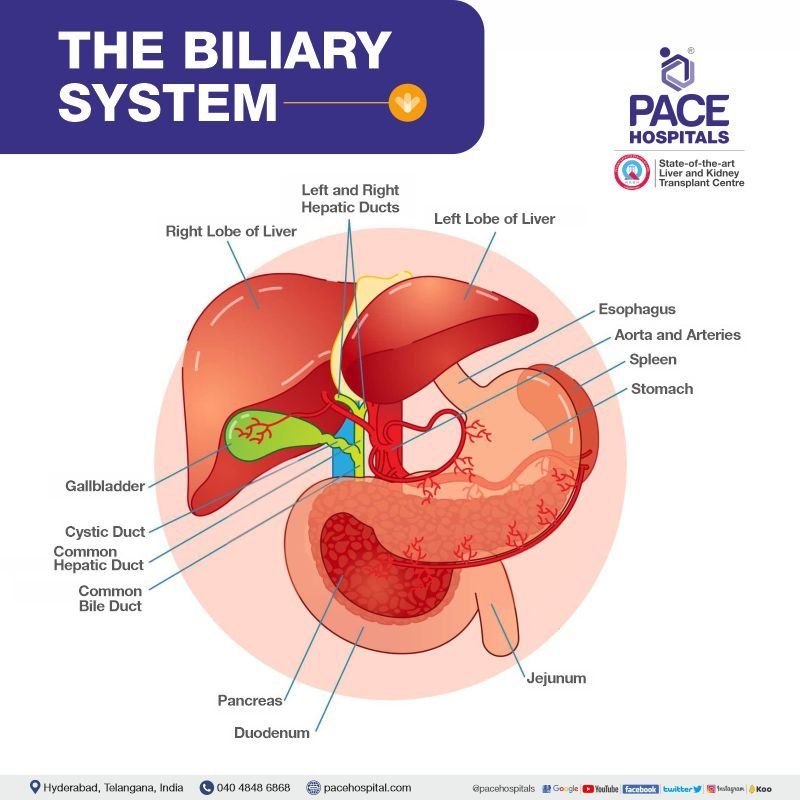
What are the causes of Alagille Syndrome?
Alagille syndrome is associated to either the JAG1 (jagged 1) gene mutation or the NOTCH2 gene mutation. JAG1 gene mutation accounts for nearly 88% of Alagille syndrome, and NOTCH2 gene mutation accounts for around 1% of these rare cases.
It is a rare condition that happens to one in a 1 lakh children and affects both genders. In the case of parents with Alagille syndrome, there is a 50% chance that children may develop the condition. Generally, the mutation is new, not inherited.
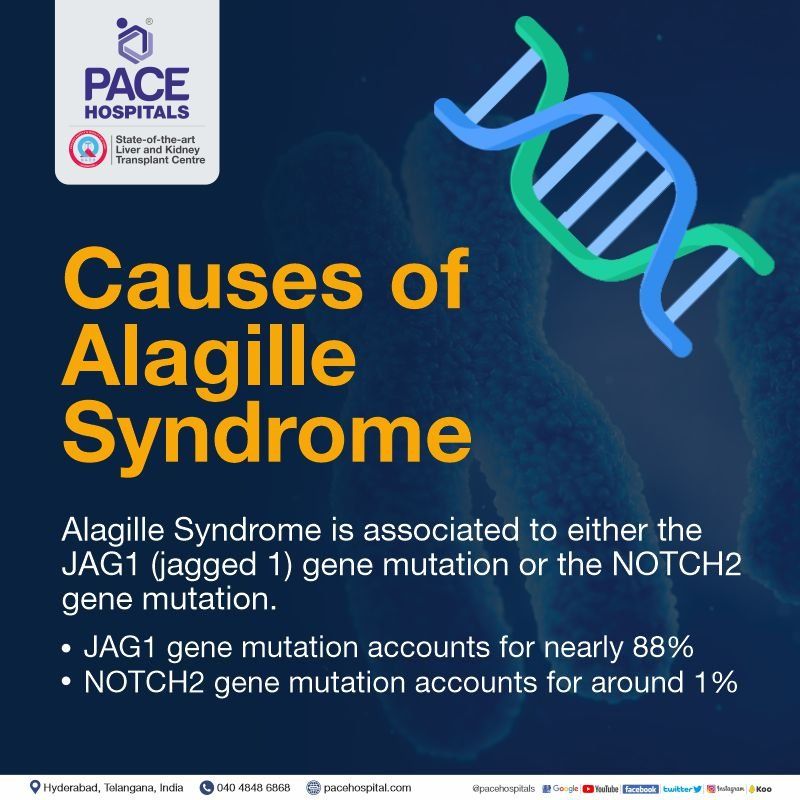
What are the symptoms of Alagille Syndrome?
Symptoms of Alagille syndrome usually appear during the first two years of life. A proper and thorough diagnosis by an expert hepatologist (liver specialist) would be suggestible in the case of this syndrome, as the symptom can be very similar to other ailments.
Alagille syndrome could also be the reason for malfunctioning body parts like the heart, eyes, skeleton, kidneys, and other organ systems. The liver is the primary organ affected by this syndrome. Its effects may range from jaundice or mild cholestasis to severe, progressive liver disease that can lead to liver failure.
Below are the most common symptoms of Alagille syndrome.
- Yellow Skin or Eyes (Jaundice): Jaundice, a condition with yellowing skin and the eyes' whites, can develop when bile is not properly excreted from the body. Poor bile transport and malabsorption can cause dark, pale, grey, or white stools. The yellow colour is due to the deposition of bilirubin when the liver cannot get rid of bile well enough.
- Itchy Skin (Pruritus): Deposition of bilirubin due to poor flow of bile can lead to an itching sensation.
- Delayed Growth: Alagille syndrome can make it difficult for the body to utilize nutrients such as fat-soluble vitamins. This can affect growth and normal development.
- Hard Skin Bumps: Alagille syndrome can lead to xanthomas, small amounts of fat that build up under the skin due to high cholesterol levels in the body, which happen because of the inability of the liver to get rid of cholesterol efficiently.
- Enlarged Spleen: Alagille syndrome damages the efficiency of the liver to get rid of excess fluid, which may cause spleen swelling due to the backing up of blood in the spleen. The role of the spleen is to purify the blood and prevent infections. An enlarged spleen increases the risk of severity, especially during sports.
- White ring in the Eye: Posterior Embryotoson - a ring-like structure in a cornea is an evident symptom of the Alagille syndrome, which can be visible during the eye test.
- Kidney Disease: Alagille syndrome may affect the efficiency of kidney. Kidney abnormalities, including irregular small kidneys, renal cysts, and impaired renal function, may be more common in patients with Alagille syndrome due to a NOTCH2 gene mutation.
- Heart Murmur: Alagille syndrome sufferers can develop heart abnormalities ranging from benign heart murmurs to severe structural defects. Heart murmurs in children with Alagille syndrome usually happen due to the narrowing of lung blood vessels (pulmonary artery stenosis). A heart murmur is an additional sound made during the heartbeat.
- Vascular Anomalies (Changes in blood vessels):
People with Alagille syndrome may also develop abnormalities in particular blood vessels, including the brain, liver, lungs, heart, and kidneys. Blood vessel abnormalities in the brain can lead to bleeding within the brain (intracranial haemorrhage) and stroke.
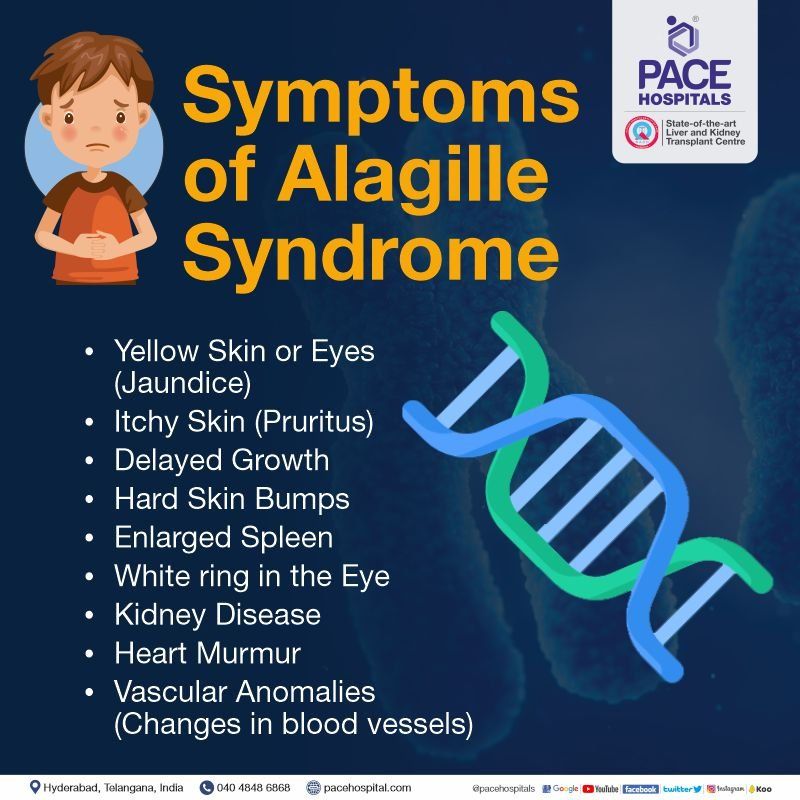
How is Alagille Syndrome Diagnosis performed?
To confirm the prevalence of Alagille syndrome, health experts perform the diagnosis followed by doing a liver biopsy with an indication of the availability of less no bile duct in the liver than usual and a few more following symptoms:
- Characteristic face shape of Alagille syndrome
- Abnormal bone/vertebral structures, such as a butterfly's spine
- Abnormal structure of the heart/vessels or heart murmur
- Liver problems
- Characteristic white rings on the cornea
Apart from liver biopsy tests and prevalence of symptoms, healthcare experts check for the patient's medical history and other medical tests to confirm the Alagille syndrome. Some tests performed to diagnose the Alagille syndrome are as follows:
- Heart and blood vessel tests
- Eye exams
- Spine X-ray
- Abdominal ultrasound
- Kidney function tests
- Genetic testing
What are the complications of Alagille Syndrome?
Alagille syndrome can be associated with the abnormalities of other organs in the body. Hence, there is a chance that this rare disorder can affect the functioning of other organs, causing different ailments and complexity.
Some of the complications that could occur due to Alagille syndrome are:
- Liver failure
- Pancreas disease
- Problems with the eyes
- Bleeding into the brain
- Bone fractures
- Malnutrition
- Delayed mental or physical growth
- Diarrhoea
- Heart disease
- Kidney failure
Treatment of Alagille Syndrome
As this rare disorder affects the functioning of other organs, so health expert will evaluate the patient thoroughly and will figure out the best treatment based on the circumstances:
- Age of the patients
- Based on the medical history of the patients
- The severity of the sickness
- Patient's capacity to handle particular medicines, procedures, or therapies
- Medication to raise the bile flow out of the liver
- Medication to relieve itching sensations
- Suggesting vitamin and high calories food supplements
- Surgery options to reduce the build-up of bilirubin in the blood
- Liver transplant in the case of liver failure
Can Alagille Syndrome be prevented?
As Alagille Syndrome is mainly caused due to gene mutation and is an inherited condition, having genetic testing and a discussion of genetic risk in the family can help you make informed decisions to prevent this disease in future generations.
Request an appointment
Fill in the appointment form or call us instantly to book a confirmed appointment with our super specialist at 04048486868
Appointment request - health articles
Thank you for contacting us. We will get back to you as soon as possible. Kindly save these contact details in your contacts to receive calls and messages:-
Appointment Desk: 04048486868
Whatsapp: 8977889778
Regards,
Pace Hospitals
Hitech City and Madinaguda
Hyderabad, Telangana, India.
Oops, there was an error sending your message. Please try again later. We will get back to you as soon as possible. Kindly save these contact details in your contacts to receive calls and messages:-
Appointment Desk: 04048486868
Whatsapp: 8977889778
Regards,
Pace Hospitals
Hitech City and Madinaguda
Hyderabad, Telangana, India.
Our Locations – Find the Best Hospital Near You
Metro Pillar Number C1772, Beside Avasa Hotel, Hitech City Road, Near HITEC City Metro Station, Hyderabad, Telangana, India.
Mythri Nagar, Beside South India Shopping Mall, Hafeezpet, Madeenaguda, Hyderabad, Telangana, India.
040 4848 6868
Payment in advance for treatment at PACE Hospitals, Hyderabad, Telangana, India (Pay in INR ₹)
For Bank Transfer:-
- Bank Name: HDFC
Company Name: Pace Hospitals
A/c No.50200028705218
IFSC Code: HDFC0000545 - Bank Name: STATE BANK OF INDIA
Company Name: Pace Hospitals
A/c No.62206858997
IFSC Code: SBIN0020299
Scan QR Code by Any Payment App (GPay, Paytm, Phonepe, BHIM, Bank Apps, Amazon, Airtel, Truecaller, Idea, Whatsapp etc).

CONTACT US
Call: +914048486868
WhatsApp: +918977889778
Email: info@pacehospitals.in
FOLLOW US
SUBSCRIBE
Subscribe to our newsletter and stay updated with the latest health information.
Subscribe to PACE Hospitals' Public Newsletter
Thank you for subscribing to PACE Hospitals' Newsletter. Stay updated with the latest health information.
Oops, there was an error. Please try again submitting your details.
ABOUT US
QUICK LINKS
Disclaimer
General information on healthcare issues is made available by PACE Hospitals through this website (www.pacehospital.com), as well as its other websites and branded social media pages. The text, videos, illustrations, photographs, quoted information, and other materials found on these websites (here by collectively referred to as "Content") are offered for informational purposes only and is neither exhaustive nor complete. Prior to forming a decision in regard to your health, consult your doctor or any another healthcare professional. PACE Hospitals does not have an obligation to update or modify the "Content" or to explain or resolve any inconsistencies therein.
The "Content" from the website of PACE Hospitals or from its branded social media pages might include any adult explicit "Content" which is deemed exclusively medical or health-related and not otherwise. Publishing material or making references to specific sources, such as to any particular therapies, goods, drugs, practises, doctors, nurses, other healthcare professionals, diagnoses or procedures is done purely for informational purposes and does not reflect any endorsement by PACE Hospitals – your trusted hospital near me.

